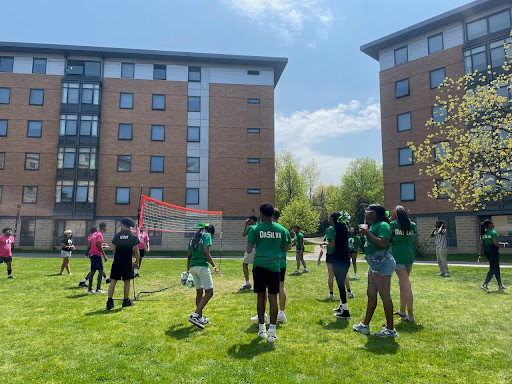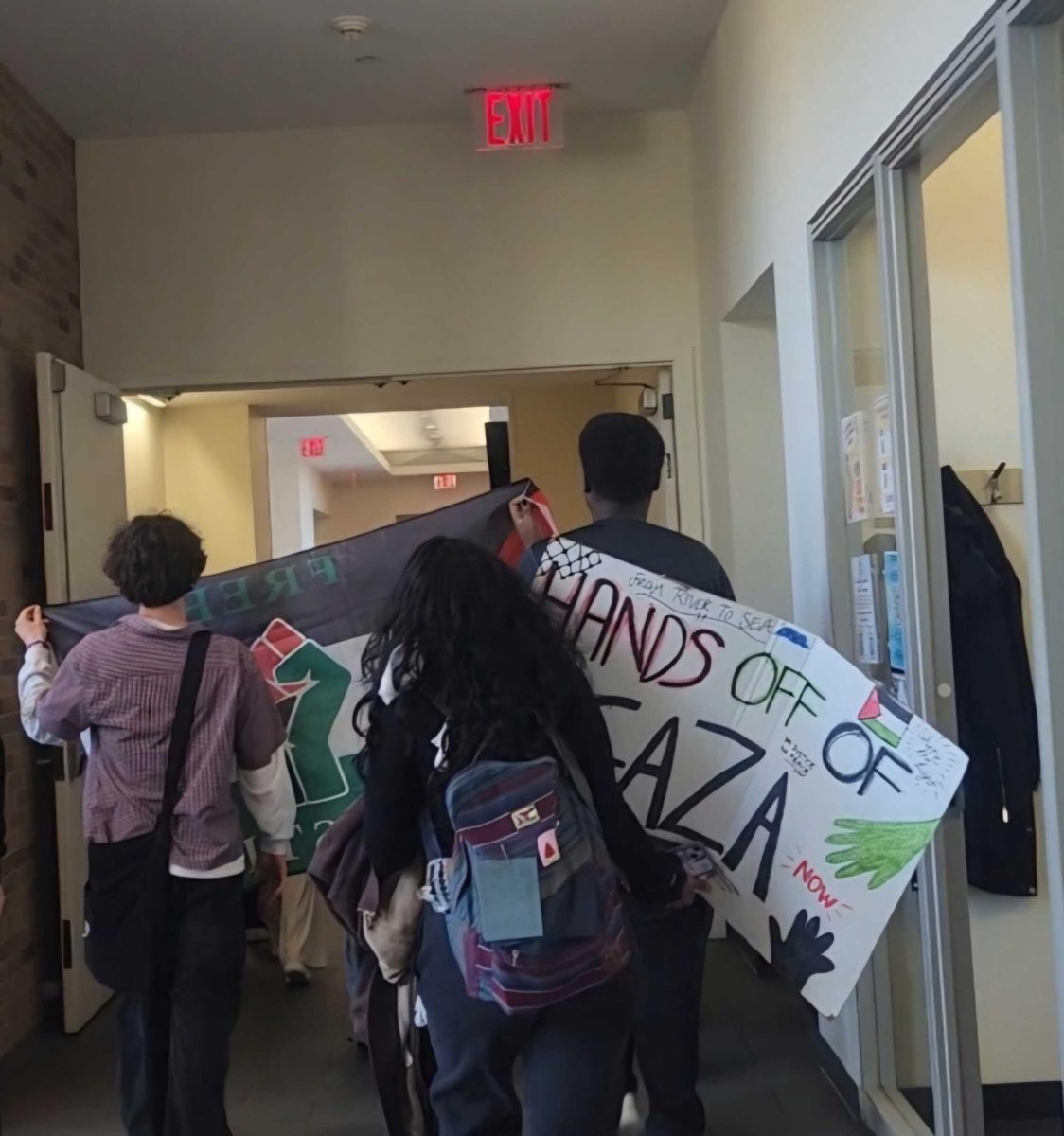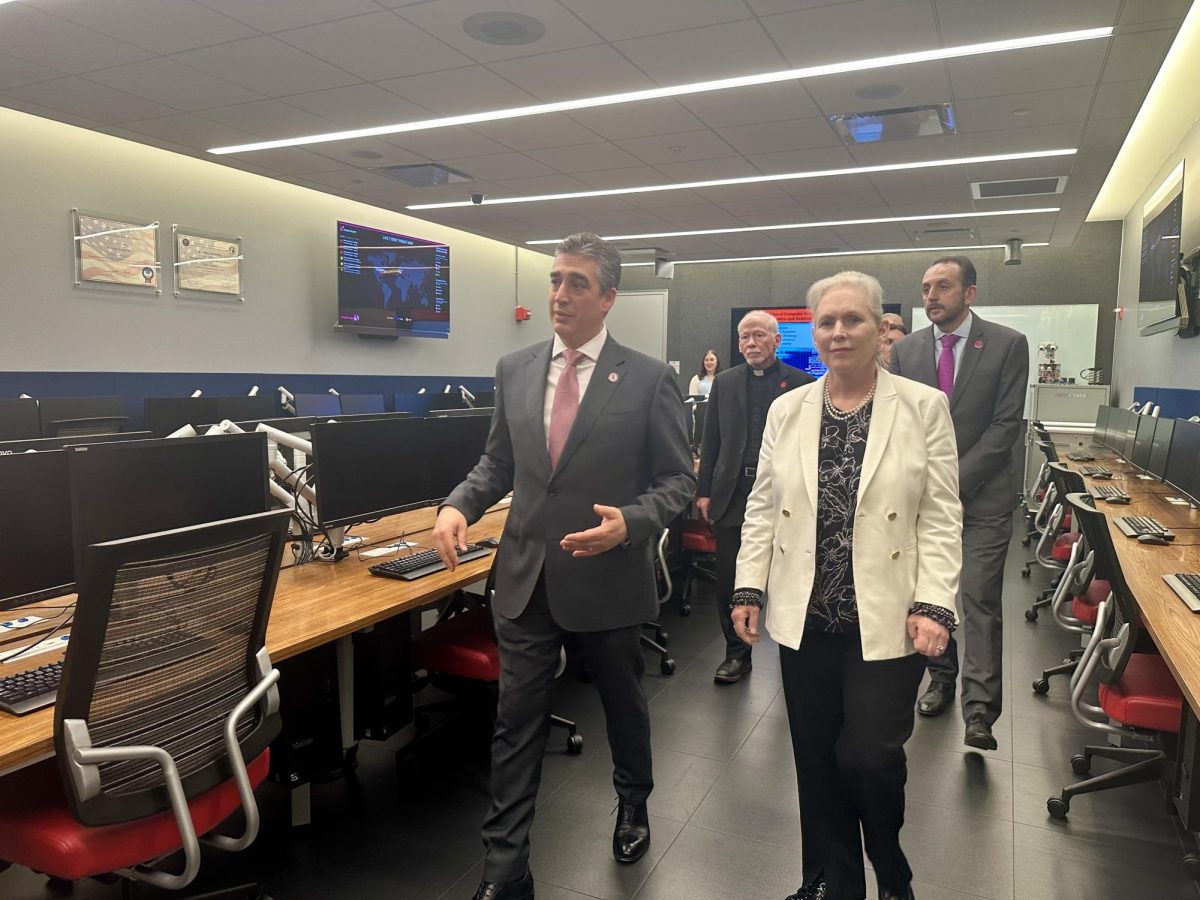Students struggling financially to buy nutritious food consistently now have options to address the challenges they are facing.
In October’s final Student Government Inc. meeting, President Atemkeng Tazi, along with other members, addressed the issue and how it impacts students on campus.
According to the Service Committee, students can fill out a questionnaire on the homepage of the MySJU website, providing a more confidential approach to seeking out help in person or over the phone.
According to Service Chair Katie Sheldon, an unidentified alumnus of the school has donated money to specifically alleviate issues of “food insecurity” and food emergencies that students experience.
Because of that, the committee elected to do away with the food pantry it planned to introduce in the near future.
“In the last two years, 12 students have identified as being ‘food insecure,’ so technically on paper, there isn’t a true need for [the food pantry],” Sheldon said during the meeting. “However, we’re not going to say there isn’t a need in general, because obviously there is some type of discrepancy happening. Our main priority now is going to be, ‘how are we getting the available resources out?’”
Sheldon added that the process of reporting food insecurity is now similar to the general reporting system for bias and other other troubles that a student may experience.
The new online initiative was created after she and Vice President Christopher Stephens met with Lucy Pesce, executive director for Mission, and Associate Dean for Student Services Jackie Lochrie.
Now, instead of emailing representatives about their struggles with food, a student can just fill out a form with their name, email address and phone number to get more information.
“It sounds very simple, but it makes it a very different process,” Sheldon said. “The ambiguity is a little easier, so that way the administration is reaching out to the student and vice versa.”
According to Pesce, students seek assistance for many reasons. Some come without warning, while others are a product of personal issues.
“Some of these reasons include unexpected, short-term changes in their financial situation or resources,” she said. “For other students, even though they may be working or have financial assistance, they are simply unable to make ends meet.”
Pesce said that the number of students who have requested assistance since the University intensified its awareness around available resources has increased.
She said that exact numbers are difficult to keep track of because some students who face food insecurity could be juggling financial issues at the same time, while others may request confidentiality.
One of the telling factors of food insecurity deals with education.
While it may not be surprising to hear of students who live on campus struggling to obtain food or the funds for it, Pesce says it’s those who do not live in a residence building that are greatly impacted.
“National research shows that a lack of consistent, nutritious food can negatively impact a student’s ability to succeed academically, in addition to increasing the amount of both physical and emotional stress experienced by the student,” Pesce said. “Though this is an issue with some of our resident students, it can actually be of greater concern for our commuter students, who do not have a meal plan on which they can rely.”
Those who believe they are lacking the resources for food can reach out to two primary contacts: Campus Ministry and Student Affairs.
Students who are studying abroad can reach out to the administration at the University’s global locations.
But food insecurity is not just an issue at St. John’s.
Defined by Pesce as “a lack of resources to obtain nutritional food on a consistent basis,” the issue has grown on campuses around the country. Many students help their parents with tuition or other necessities, such as books and rent.
Oftentimes, that means choosing between expenses and food.
“In an effort to address this issue, St. John’s University has taken steps to respond to the immediate nutritional needs of current students, while seeking to better understand the extent of these concerns, in order to establish and maintain a viable, long-term solution,” Pesce said. “Though the University has supported students struggling with food insecurity in various ways throughout the years, a more formalized process was established in Spring 2016 that allows for a more efficient, timely response, particularly in unexpected, emergency situations.”
The effort to mitigate the problem is a collaborative effort among several University groups, including the Office of University Mission, Student Affairs, Campus Ministry and Student Financial Services.
Upon meeting with a student to discuss the issue, the next step is to determine whether it is a short-term or long-term problem. Short-term issues can be the result of recent and unexpected financial changes in a student’s life, according to Pesce.
“We then work with Student Financial Services to ensure that the student is receiving all available funding, and what additional resources might be useful based on the individual situation,” she said.
Although it varies, there are warning signs of food insecurity. Taking each situation case-by-case is important when evaluating its severity, as some may be more urgent than others.
“Students struggling with food insecurity often exhibit signs consistent with inadequate nutrition, which can impact concentration, sleep, and overall emotional and physical well-being,” Pesce said. “Though changes in a financial situation or other resources may be involved, we work with each student individually so that we can best support them and develop a plan to move forward. Our hope is to remove the stigma of food insecurity so that we can support our students.”

















